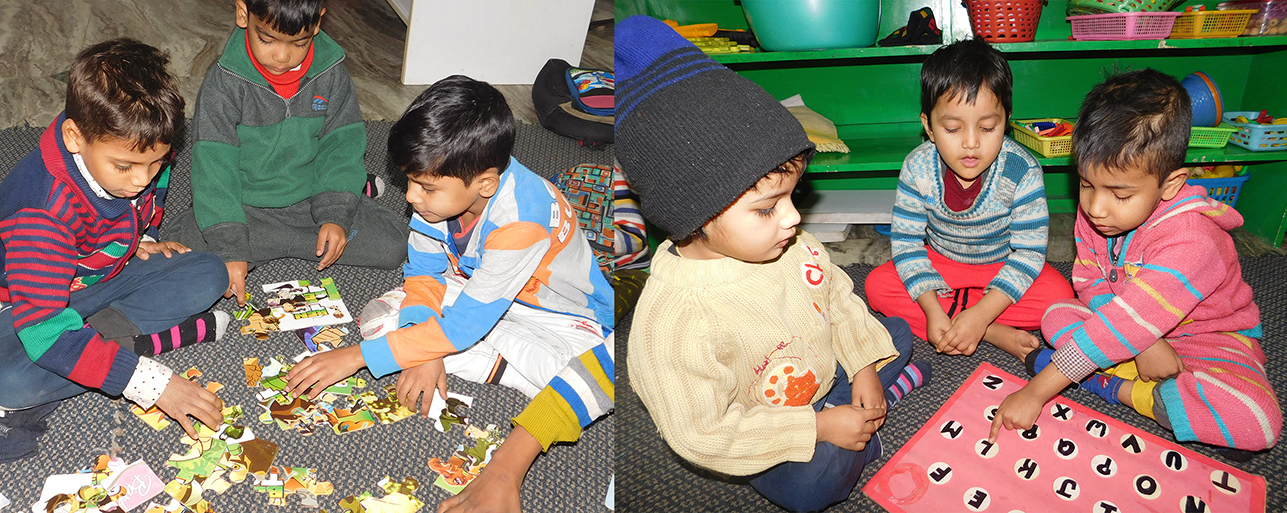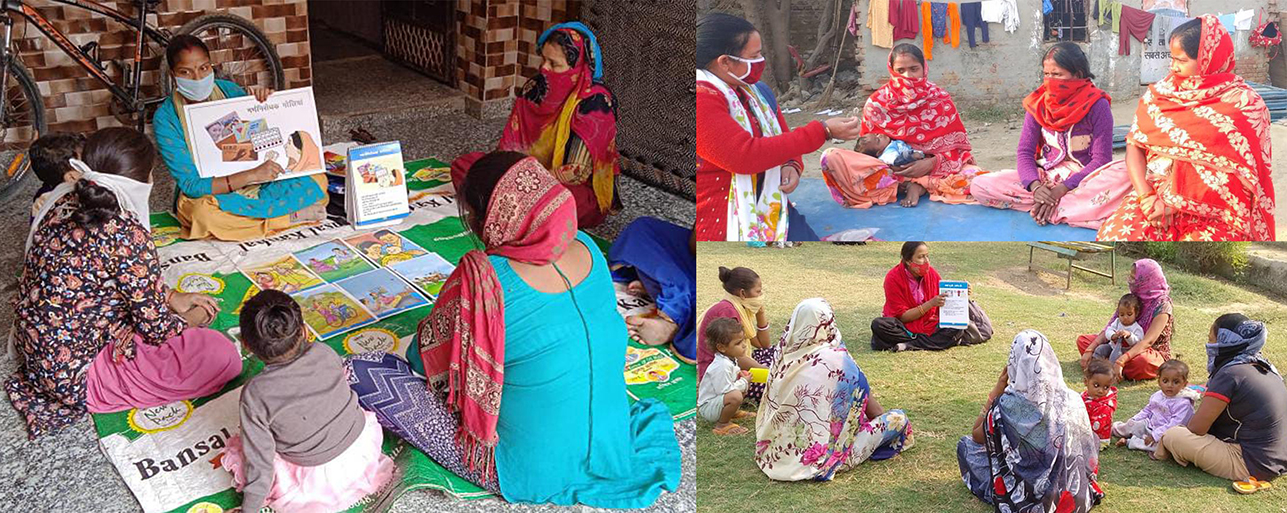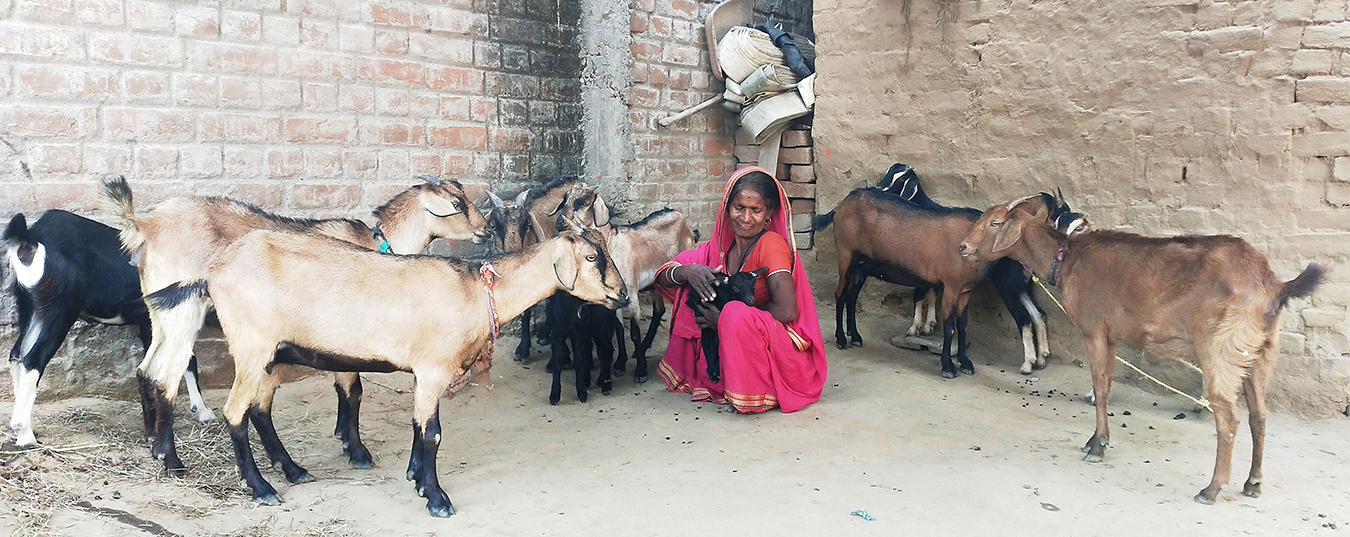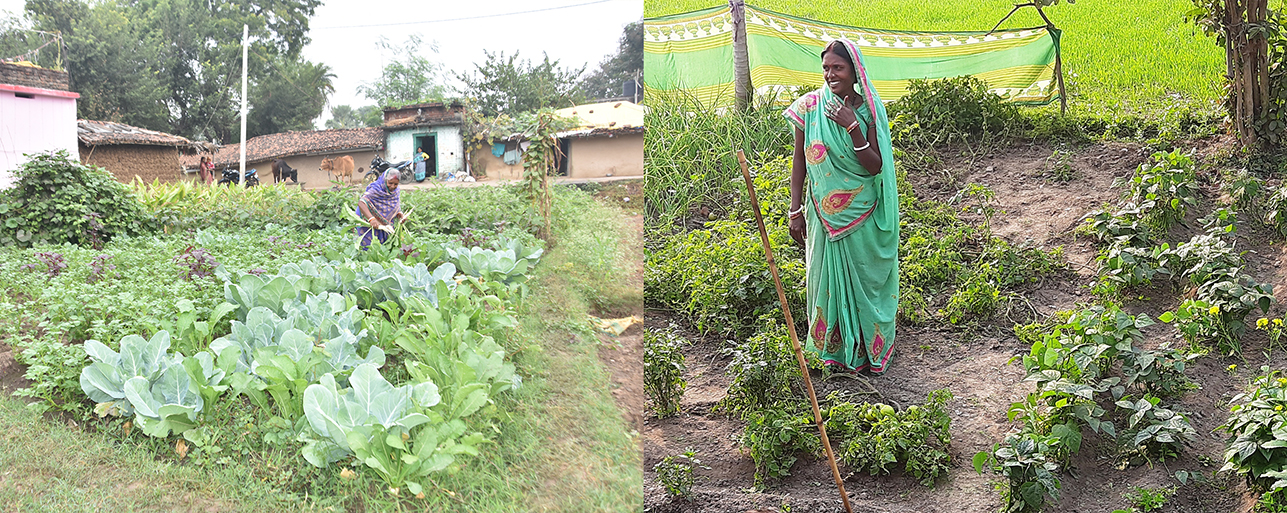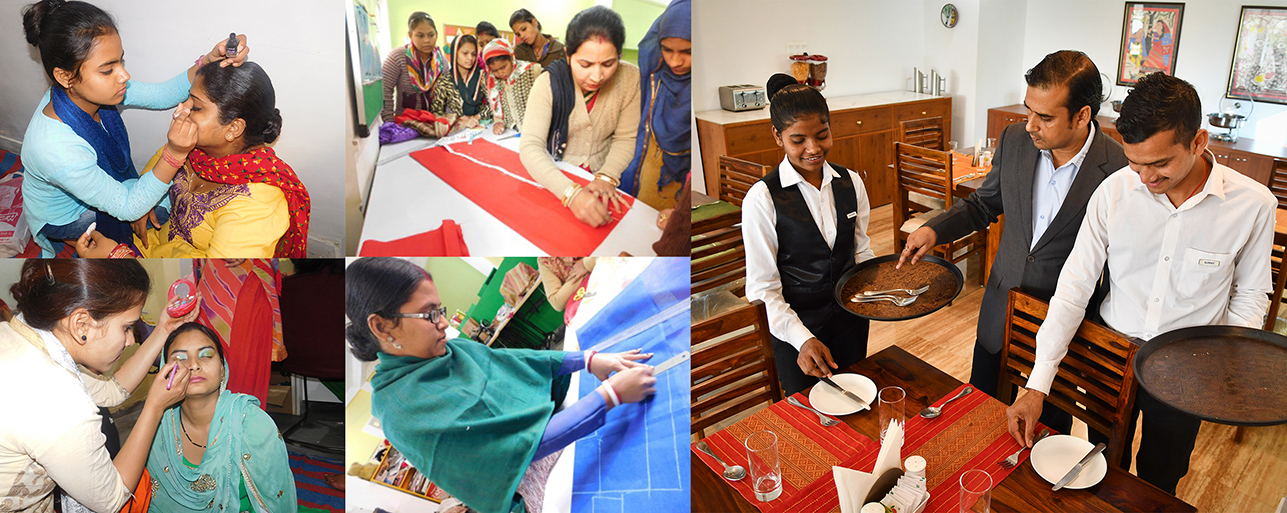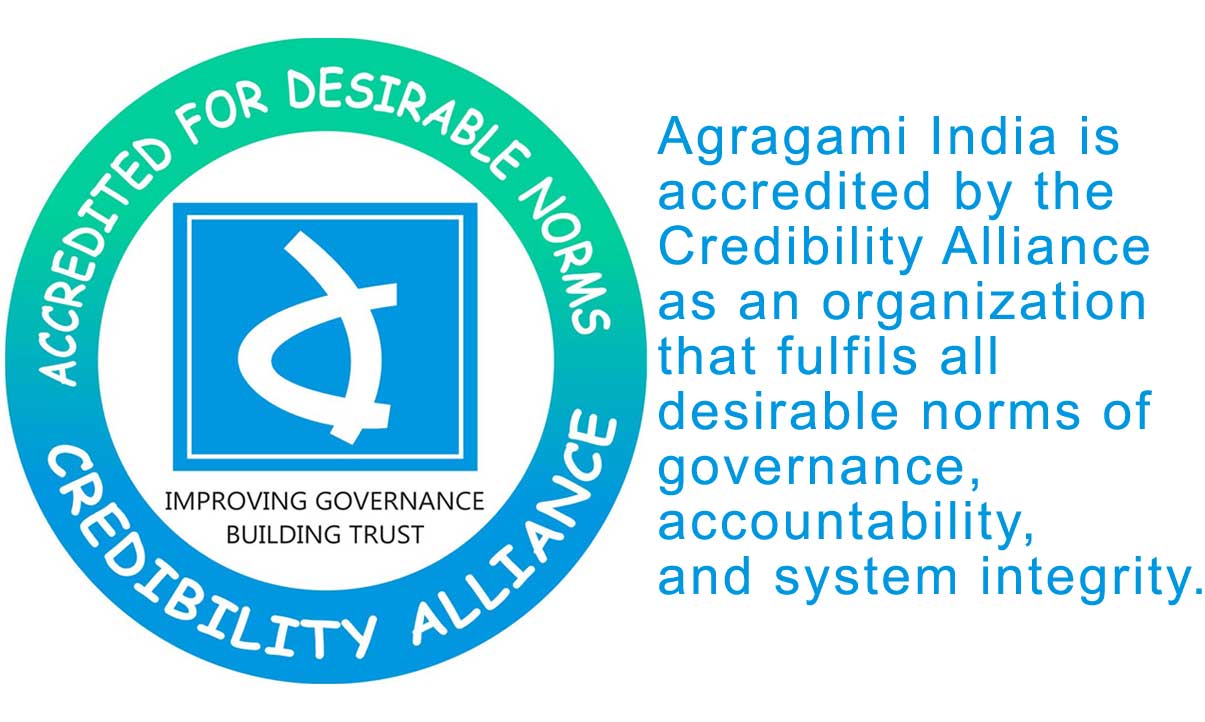
Agragami India seeks to bring about sustainable change in the quality of life of the rural and urban poor by addressing the causes of multi-dimensional poverty – poor health & sanitation, lack of education, and absence of livelihoods opportunities. Its programs provide information, education and skills that empower and enable communities – particularly women and young adults – to adopt positive behaviours and utilize essential services for health, sanitation, education, skill development, and income generation.
Agragami’s development interventions are focused on Bihar, and the low-income settlements of the National Capital Region.
Agragami also builds the capacity of community outreach workers, both government and non-government.
Agragami India (‘Agragami’) was formed in 2001 by a group of development professionals with a common vision- improving the lives of vulnerable families. Agragami India is registered as a society, under the Societies Registration Act of 1860, XX1. It has FCRA registration, and is tax exempt under both sections 12A and 80G of the Indian Income Tax Act. It is registered on Niti Ayog’s NGO Darpan portal, and with the Ministry of Corporate Affairs for undertaking CSR activities.

The Bodhgaya Hotel School is pleased to announce that its fifth courses in ‘Hotel Operations’ and ‘Food Production’ have commenced from 1st August 2023

